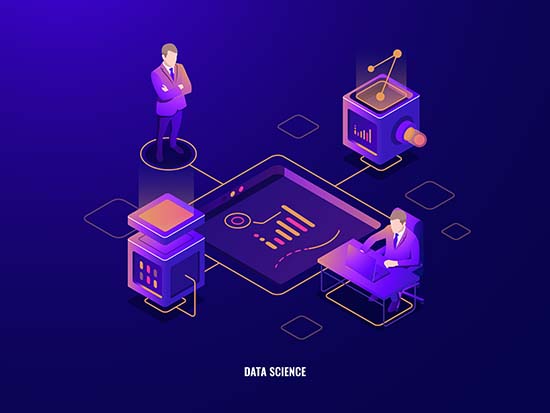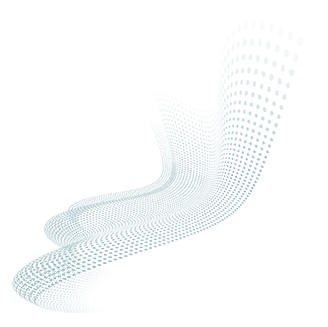The Deep Web is a secret area of the Internet which cannot be accessed using search engines; only personal networks, peer-to-peer configurations or special authorization can access this part.
Avoiding risks when browsing the Deep Web can be daunting; without careful management, you could end up on pirate sites or content which could be offensive. But adhering to certain browsing guidelines can help lessen these dangers and ensure safe exploration.
What is the Deep Web?
The deep web encompasses everything that doesn't appear in search engines because it is protected by passwords or other security measures, including your email account protected with password protection, parts of paid subscription services such as Netflix and Spotify, intranets used by businesses, schools, or organizations, etc.
Deep web databases containing hotel bookings, online purchases and medical records could be compromised for criminal use. However, this site might not likely be hacked for illicit gain directly. Hackers could potentially utilize information found there to commit identity theft or fraud.

Protect yourself against malicious actors by installing antimalware and antivirus protection on your computer and mobile device. Malware can steal personal data from any surface or deep web website and then sell it to identity thieves and scammers, who use it for illicit activities.
Beyond privacy risks, another main worry with the dark web is how it undermines egalitarian hopes of the early Internet. Fee-for-service sites requiring user id, password and money to gain access to premium productivity tools limit these vital resources only to those who can afford them and create an uneven playing field for all internet users, degrading overall quality.
Even with all its associated dangers and privacy risks, most people unknowingly use the deep web every day without realizing it. When you log into your bank account with username and password credentials, for example, or search library catalog numbers online using search engines such as Google or Bing, results come from deep web sources. Though its presence may seem intimidating initially, you should still take precautions against malware infections that could impact both devices and computers connected to it.
What is the Dark Web?
The Dark Web refers to everything on the Internet not indexed by search engines, such as medical records, private social media accounts and fee-based content requiring password authentication. Criminals frequently use it for purchasing weapons, drugs and fake IDs on illicit markets.
Tor is a special browser designed to give access to the dark web, routing your online traffic through various relay nodes to keep browsing activity anonymous and prevent tracking users on this platform. While tracking may be more difficult than on mainstream sites like Facebook or Twitter, that doesn't mean illegal activity won't get detected!
Most people do not utilize the dark web for illicit purposes; rather, it is an invaluable resource for whistleblowers, journalists, and political dissidents who require anonymity to work their craft. Furthermore, its popularity among hackers allows them to discover vulnerabilities they can exploit for financial gain or other malicious reasons.
Ransomware has become an extremely lucrative business model for cybercriminals. Each time victims pay the ransom amount, hackers get their cut of it - hence why many enterprises now include dark web monitoring as part of their security strategies.
Even though it has the name "dark web", its access isn't that secretive; most can be reached through traditional web browsers like Google or DuckDuckGo. To remain safe when searching the dark web, use an advanced search engine based on Tor that offers privacy extensions to stay safe while exploring.
Deep Web and the Dark Web Difference
The Deep Web and Dark Web should not be confused, although both may refer to portions of the Internet. The Deep Web refers to any part of the net that requires login credentials for entry, such as websites with paywalls or content not easily found through search engines; experts estimate it makes up between 90%-95% of all Web traffic.
The Dark Web is a subset of the Deep Web that utilizes encryption software to hide content from search engines and protect its users' online activities. Accessing sites on this subdomain requires using special-purpose browsers like Tor.
This version of the Internet is massive, though its exact size remains hard to quantify since its content remains hidden from search engines and requires special software to access it. It's considered much larger than what can be accessed using regular web browsers alone.
Though the Dark Web serves many legal functions, it also acts as a breeding ground for illegal activity and criminal marketplaces - including black markets for stolen credit cards and personal information, illegal firearms, malware, drugs and se* trafficking. Cyber attack services like accessing botnets to launch denial-of-service attacks are sold here too.
On the other hand, there are numerous valid reasons for people to utilize the dark net. Some use it to download pirated music and movies that are unavailable elsewhere online; others use it to bypass censorship and protest repressive regimes by communicating anonymously via the Net - WikiLeaks even has its site in this realm - as well as protecting whistleblowers who risk political retaliation from their government while needing to keep their identity hidden.
How Can I Access the Deep Web?
Though the dark and deep web have gained negative attention in popular culture, they are relatively safe environments to navigate. Basic online hygiene should always be practiced to protect yourself against cybercriminals' attempts at exploiting your information - this means using strong passwords on accounts you own as well as changing default ones provided by websites and using an antivirus program with antimalware protection to keep your data safe from attackers.
The deep web consists of web pages not indexed by popular search engines like Google or Bing, requiring special software or techniques to access. You might find login portals for websites, payment systems, or even private forums where people discuss sensitive subjects.
Dark web searches require special software on computer and mobile devices, such as Tor. Tor encrypts data before routing it through various servers - making it virtually impossible for anyone to track your activity or location online. You may still access deep web URLs using regular browsers; however, most URLs contain lengthy strings of letters and numbers that require patience when browsing them.
Although many view the deep web as a haven for illegal activity, it's important to remember that it only comprises one small portion of the Internet. In reality, whistleblowers and journalists can utilize its anonymity when conducting research. At the same time, it is also used for banking transactions, medical procedures and education services, among many other legitimate activities.
How Can I Access the Dark Web?
Using a secure virtual private network (VPN) and anonymizing browser allows for safe exploration of the dark web, often known for illegal drugs, gun sales and child pornography, but also provides valuable information that would otherwise be vulnerable to hackers. For example, if your doctor offers blood work tests online, this would likely reside on this section of the Internet; search engines like Google may not index this type of page, making it hard to discover without digging deeper.
Intranets used by companies or schools and free or paid online services like email, bank accounts and Dropbox all fall under the deep web's purview, with more dangerous content such as criminal acts, whistleblowing activities and expressions of dissatisfaction visible further into it. You'll also encounter marketplaces where users sell or purchase everything from illicit drugs to services requiring upfront payment.
The Dark Web can also be utilized by journalists seeking to communicate with sources without government snooping and medical professionals offering confidential advice online. But it can be dangerous, particularly for those unaware of its risks or not using VPN protection; for instance, when connecting your bank account or health insurance policy to unprotected public Wi-Fi networks, you could put yourself at risk of data theft.
As can be seen, the Internet consists of layers. At its surface level is the surface web; below it lies the deep web and, beneath that, the dark web - knowledge of which helps keep cyber security measures current while safeguarding you against fraudulent actors who try to scam users into signing up with their services.
